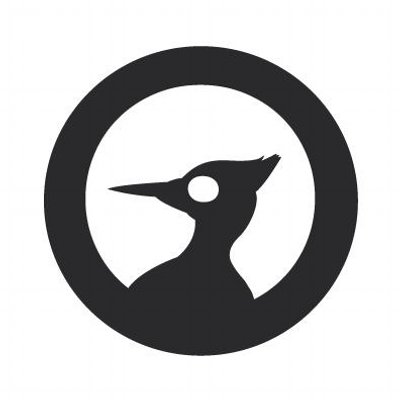 Founded in 2011 by two brothers, Alan and Gary McCormack, CarveOn design and make premium personalised leather accessories. Here they discuss their succesful venture into this highly competitive sector.
Founded in 2011 by two brothers, Alan and Gary McCormack, CarveOn design and make premium personalised leather accessories. Here they discuss their succesful venture into this highly competitive sector.
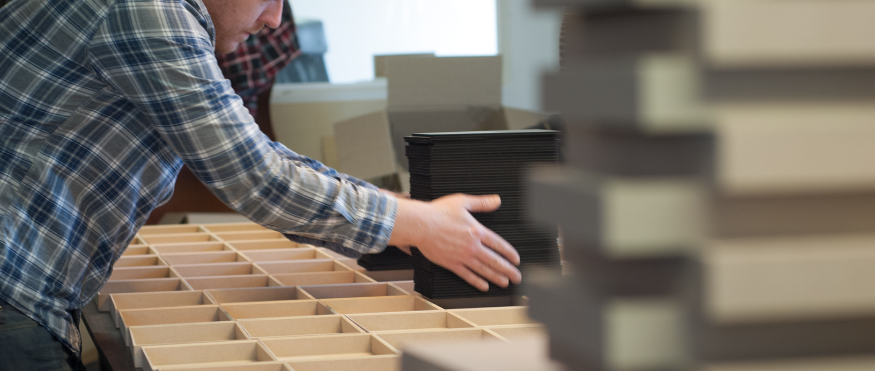
Tell me a little about the company
We use a blend of traditional and modern techniques while working with rich and highly resourceful natural materials, primarily leather.
Our company specialises in customisation both on a bulk level for our corporate clients and also on an individual basis for our one off customers. About 75% of our orders (and growing) are exported all over the world.
We manufacture everything we sell - at our workshop in our hometown of Kill, Co. Kildare. We are a close-knit team of 5 and expect that number to grow gradually in the future.
We primarily sell through our website. www.carveon.com but also through selected retailers and 3rd party websites in other foreign markets.
Some interesting statistics:
- 27% of our customers are referrals.
- 71% of our social media referrals come from Facebook.
- 25% of our customers are from Ireland, 27% from the USA and 17% from the UK, the rest are from all over the world.
- Normally 2.5% of visitors to our website, make a purchase. This jumps to around 10% during Christmas.
Tell me your experiences of the early stages of starting your business in Kildare?
Our beginnings were humble and very much bootstrapped. We started small in a home-based workshop and built a website to sell our first range of products, which were accessories for Apple iPhones and iPads. They were very much products we wanted to design and use for ourselves.
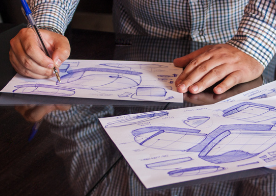
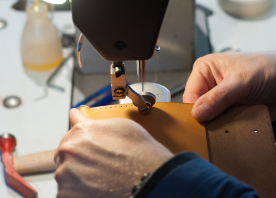
Once we had proven sales and regular corporate clients we approached LEO, then the Kildare Enterprise Board to discuss our options. We were pleasantly surprised how helpful and supportive the team were. They were impressed we had proven our business model ourselves and were confident our growth projections were achievable with the right support. They were able to guide us through the application process and provided us with growth funding. We used this to rent a premises, buy machinery and equipment which increased our capacity significantly. It allowed us to target larger clients and chase more lucrative projects. We would not be where we are today with this help from LEO.
What were the benefits to you starting your business in Kildare?
Both of us (Alan & Gary) worked in Dublin’s city centre but lived in Kildare most of our lives. Its nice working where you grew up and being close to friends and family. Time is also our most precious resource so we didn’t want to waste it sitting in traffic.
Kildare has plenty of other benefits. It has its own share of small and large businesses, all of which are potential clients. It has great infrastructure and allows for quick and easy access to the capital city when required.
Our workshop is in an old farm yard that is now full of other small businesses and there’s a lot of sharing of resources and help available when needed.
What challenges did you encounter in starting up your business?
We had been funding our growth with profits which is difficult during the early stages of a company, as materials and inputs are purchased in small quantities so there are no real economies of scale. The LEO funding allowed us to divert our existing cashflow towards bulk purchasing of inputs which reduced our input costs and in turn increased our profitability. This increase in profitability then allowed us to spend more on marketing and other important areas to accelerate our company’s growth.
What points of advice would you give to early stage entrepreneurs on how they can make their venture a success?
- Launch your ‘Minimum Viable Product’ ASAP
There are lots of people with lots of good ideas and intentions. It is easy to pull information from the web to support the viability of your business plan. I think it is close to impossible to accurately project a business model without first testing it. Being able to show hard numbers, i.e. what was achieved with minimal investment, can make it an easier sell when you are illustrating what could potentially be achieved with greater investment and assistance.I think business ideas should be refined down to their bare bones. Look at what is required to launch the most basic version of the business. In our case we designed a very small range of products, purchased small quantities of materials, built a basic ecommerce website using a platform system and used social media for inexpensive marketing.
- Work with people that have skills different to your own.
When starting a business you need to wear all of the hats, from product development, branding, marketing, sales, accounting, manufacturing, and so on. It is difficult to grow efficiently and improve the business without building a team to delegate the workload to. We found by hiring talented people, they were able to add to the companies capabilities and indeed the quality of our offerings. For example, we used to do our own stitching and now work with an extremely talented, traditionally trained cobbler with 15 years of experience. That alone increased the quality of our goods and our capabilities in terms of product offerings.
For the first time in human history it is relatively easy to start a small business and sell products and services to markets all over the world. The flip side of that is competition. Customers now have access to an unfathomable amount of high quality products and services. I think it is more important than ever to communicate the story and passion behind your brand. Unless you are selling widgets cheaper than the next widget company, customers are less concerned with the size of a company and are more interested in the quality of the offering, who is behind it and what they stand for.
If you are passionate about the area you are in, become an active member of your industry both on and offline, and most importantly enjoy what you do, I think customers will find you and the business will grow organically and steadily.
Treat your customers as human beings. Try not to think, what would a large company say or do but more try and identify with your customers and communicate with them in a natural, friendly manner. Explain you are small and growing and you would be surprised how helpful they will be to your growth. They will give free advise, use your company when possible and most importantly recommend you to their contacts.
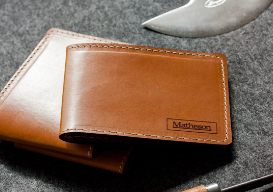
Useful Links
http://www.carveon.com/
https://www.facebook.com/CarveOn
https://instagram.com/carvedon/
https://twitter.com/carvedon
https://youtu.be/0WDNrqGE2hw
Contact
Alan McCormack, Gary McCormack
CarveOn, Unit 7, Rathgorragh, Kill, Co. Kildare |

